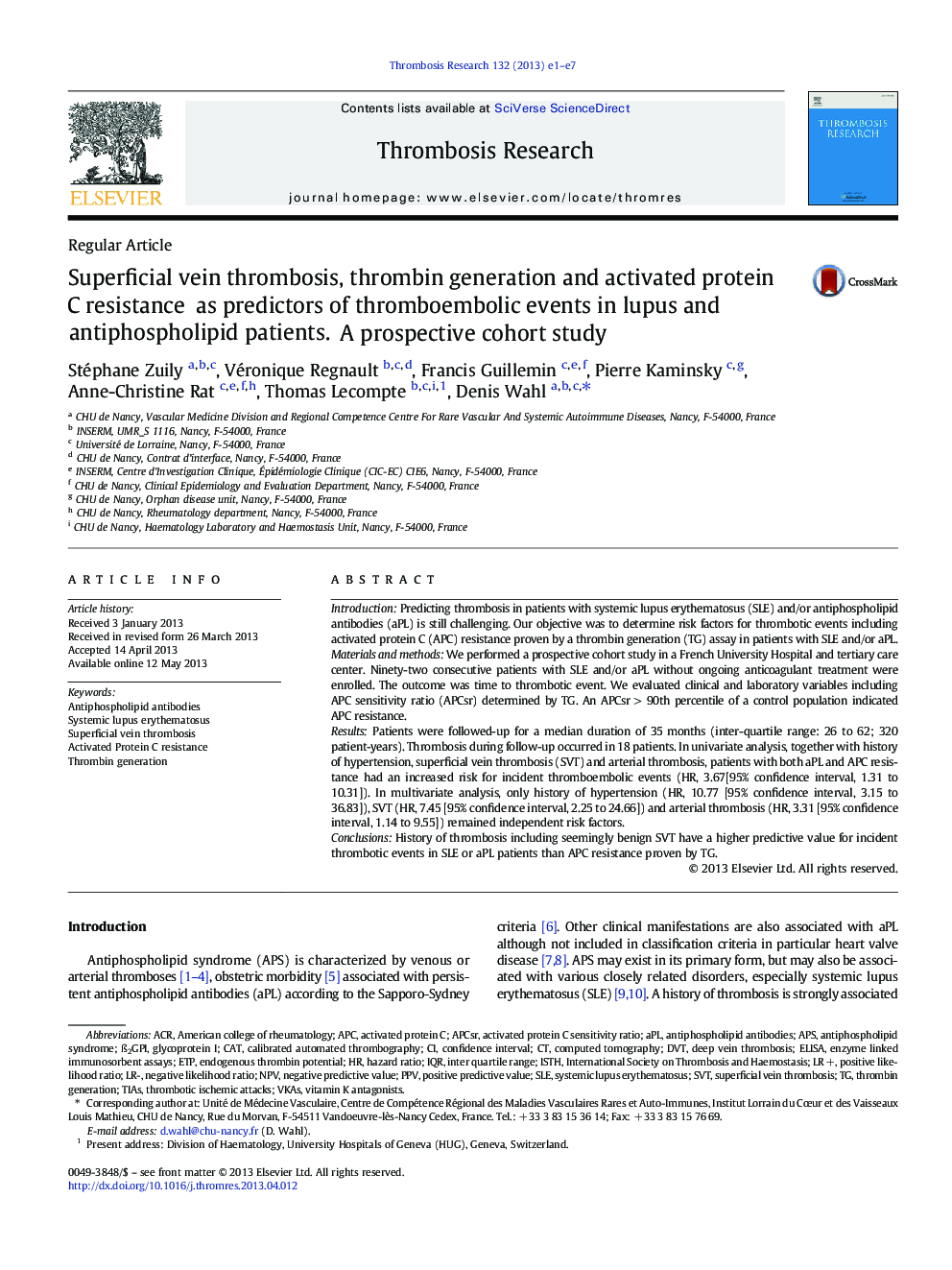| Article ID | Journal | Published Year | Pages | File Type |
|---|---|---|---|---|
| 6002646 | Thrombosis Research | 2013 | 7 Pages |
IntroductionPredicting thrombosis in patients with systemic lupus erythematosus (SLE) and/or antiphospholipid antibodies (aPL) is still challenging. Our objective was to determine risk factors for thrombotic events including activated protein C (APC) resistance proven by a thrombin generation (TG) assay in patients with SLE and/or aPL.Materials and methodsWe performed a prospective cohort study in a French University Hospital and tertiary care center. Ninety-two consecutive patients with SLE and/or aPL without ongoing anticoagulant treatment were enrolled. The outcome was time to thrombotic event. We evaluated clinical and laboratory variables including APC sensitivity ratio (APCsr) determined by TG. An APCsr > 90th percentile of a control population indicated APC resistance.ResultsPatients were followed-up for a median duration of 35 months (inter-quartile range: 26 to 62; 320 patient-years). Thrombosis during follow-up occurred in 18 patients. In univariate analysis, together with history of hypertension, superficial vein thrombosis (SVT) and arterial thrombosis, patients with both aPL and APC resistance had an increased risk for incident thromboembolic events (HR, 3.67[95% confidence interval, 1.31 to 10.31]). In multivariate analysis, only history of hypertension (HR, 10.77 [95% confidence interval, 3.15 to 36.83]), SVT (HR, 7.45 [95% confidence interval, 2.25 to 24.66]) and arterial thrombosis (HR, 3.31 [95% confidence interval, 1.14 to 9.55]) remained independent risk factors.ConclusionsHistory of thrombosis including seemingly benign SVT have a higher predictive value for incident thrombotic events in SLE or aPL patients than APC resistance proven by TG.
